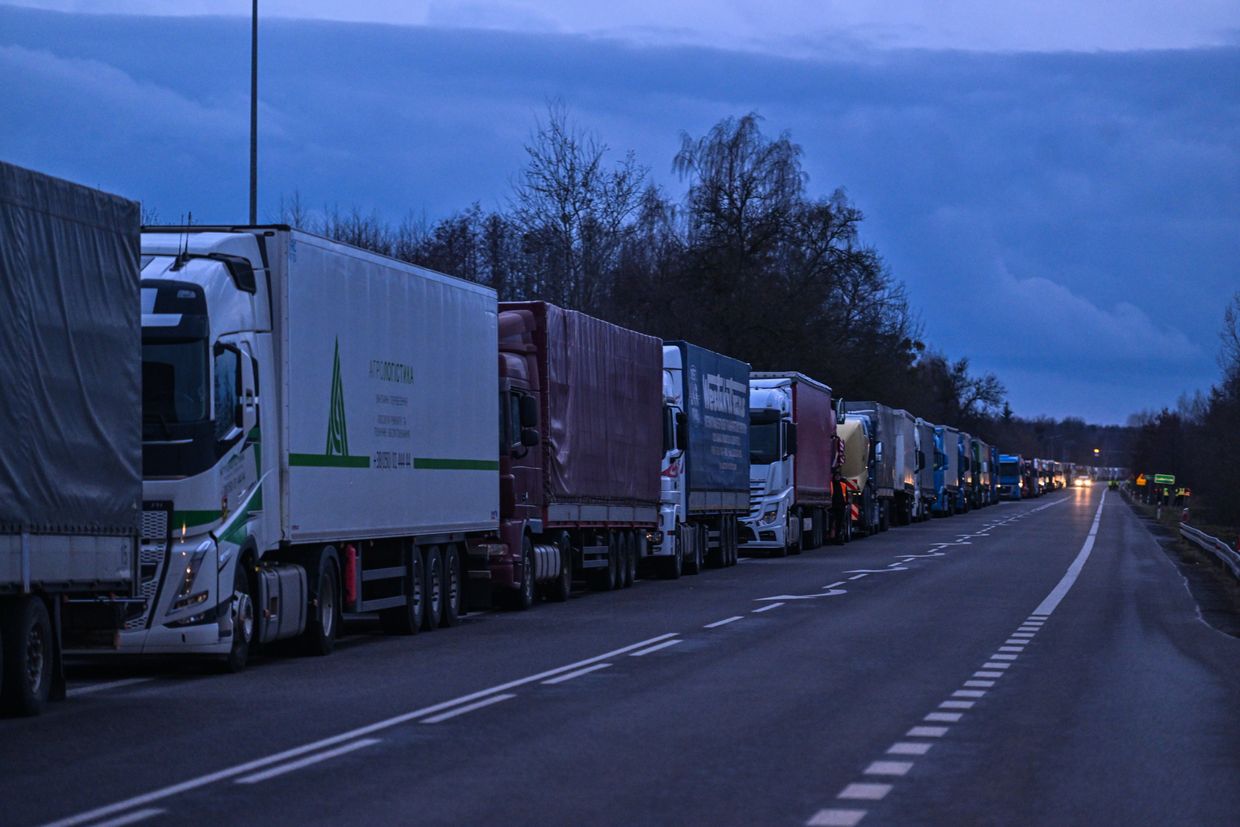EU Urged to Implement Food Sanctions Against Russia by Latvian Official – Sky Bulletin
[ad_1]
In light of an upcoming meeting in Brussels with EU Agriculture Ministers, Latvian Agriculture Minister Armands Krauze has advocated for Russian food products to join the list of goods sanctioned by the European Union, as announced on February 26.
Latvia stands out as the initial EU nation to declare a ban on Russian and Belarusian agricultural imports, with the prohibition set to take effect in March.
Latvian President Edgars Rinkevics had already expressed support for the import ban earlier in January, pointing out that these agricultural exports bolster the Russian economy. Additionally, there is a concern regarding the actual origin of the goods, as what is marketed as Russian grain might actually be Ukrainian grain that has been illicitly taken from territories under Russian occupation.
Despite the impending national ban, Minister Krauze has stressed that the move will be insufficient unless an EU-wide prohibition is established. He noted that the Latvian legislation is not applicable when it comes to goods transiting through Latvia to other EU states or third countries.
Krauze also suggested that the embargo might not necessarily reduce overall food availability, as the items currently sourced from Russia can be replaced with imports from Ukraine.
Supporting this action, Krauze stated, “This way we are helping Ukraine and not helping Russia to support its war machine.”
A Latvian official announced in December 2023 that throughout that year, more than 380,000 metric tons of grain from Russia were imported into the EU through Latvia. This marked an uptick of around 80,000 tons from the prior year. The official pointed out that this figure did not account for Russian grain being transported through Latvia to destinations outside the EU.
Media: Planned protests at Ukrainian border by Polish carriers
Carriers based in Poland’s Lublin and Podkarpackie regions are gearing up to resume their protests at various border crossings with Ukraine, including Hrebenne-Rava-Ruska, Dorohusk-Yahodyn, and Krakovets-Korczowa. There is also potential for actions to occur at the Medyka-Shehyni checkpoint, according to a report by RMF24.

FAQs About Latvian Agriculture Minister’s Call to EU for Russian Agricultural Import Ban
What has the Latvian Agriculture Minister proposed?
The Latvian Agriculture Minister, Armands Krauze, has recommended the EU to consider adding Russian agricultural goods to its sanctions list.
Has Latvia already banned agriculture imports from Russia and Belarus?
Yes, Latvia is the first EU country to decide to ban imports of grain and other foodstuffs from Russia and Belarus starting March.
Why does Latvia want an EU-wide ban on Russian food imports?
Latvian Agriculture Minister Krauze believes a national ban is not effective unless the EU also adopts such a ban, as current Latvian law does not prevent the transit of Russian goods to other EU countries or third nations.
What is the reasoning behind the proposed ban?
The proposed ban aims to diminish the economic support agricultural exports provide to Russia and to counteract the potential for mislabeled stolen Ukrainian grain being sold as Russian.
Will the ban affect the overall supply of imports?
According to Minister Krauze, the ban will not necessarily affect the supply, as Ukraine could potentially replace Russia as the source of the imports.
Conclusion
The call by Latvian Agriculture Minister Armands Krauze for the EU to ban Russian agricultural imports is a significant proposal aimed at strengthening the currently enforced sanctions against Russia. Latvia’s unilateral ban on such imports from Russia and Belarus highlights their commitment to standing in solidarity with Ukraine and ensuring that the EU is not inadvertently supporting the Russian economy amid ongoing regional conflicts. The outcome of this proposition has the potential to reshape trade dynamics within the EU and may serve as a gesture of support for Ukraine. Latvian officials advocate for a collective EU stance to be genuinely effective, emphasizing that the battle against Russian aggression extends even into the realm of agricultural trade.
[ad_2]
